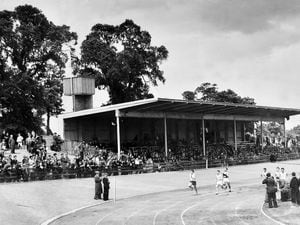Success stories from around the region as pubs find ways to bring in locals
Philip Guy remembers the first time he walked into the Red Lion.
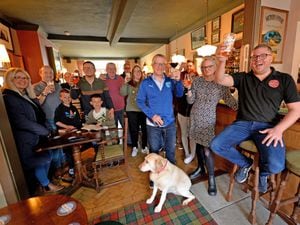
"It was the quickest pint I have ever drunk," he says ruefully. "There was no beer on, just a few cans in the fridge, it was really run down, I couldn't get out of there quickly enough."
For the past eight years he has been the man at the helm of the Red Lion in Amblecote.
He has transformed it from a seedy "den of ill repute" with used syringes in the garden to a thriving community local at the heart of a popular real-ale trail. Indeed, it has done so well that he has just added a second pub, The Swan, also in Brettell Lane, to his portfolio. And he is on the lookout for more.
"I don't believe there is such a thing as a bad pub," says Philip, 35, who worked as a manager for a large pub company before taking on the Red Lion in 2014. "We have increased takings at the Swan by 500 per cent."
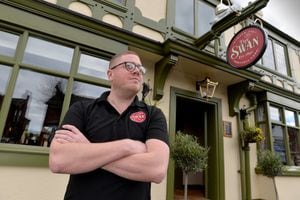
There are many who will see investing in the pub trade in the present economic climate as brave indeed. It is estimated that 8,000 pubs have closed their doors forever since the start of coronavirus pandemic two years ago. But looking at the pub trade through a glass half-full perspective, there has been a flicker of life since the restrictions were finally lifted. One study showed a 1.6 per cent increase in the number of hospitality venues between September and December last year.
"I think a few years ago there were too many pubs, but they've now levelled off to a more sustainable level," says Philip.
"The industry is changing, the days of the working-class bloke going to the pub every day have gone. It's no longer the case that your local will be your nearest pub. Today, people's local may be two, three or four miles away, they will go there because it is the pub they like, and you have to give them something to bring them in.
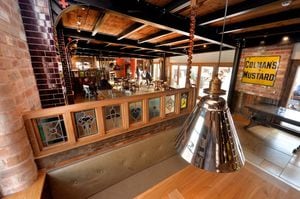
Twenty-five miles up the road in Wellington lies the Cock Hotel, another traditional pub given a new lease of life following a £1 million investment by Market Drayton based Joules.
Despite having featured in the Campaign for Real Ale's Good Beer Guide as recently as 2019, a lack of investment had seen the pub sink into a state of slow decline in recent years. For the best part of two decades it had been run by husband and wife Peter and Liz Arden, but the couple sold it back to the brewery when they retired in 2018. Rumours were rife that the 250-year-old building would be turned into flats. Indeed, shortly after taking on the Cock, Joules appeared to be in little doubt regarding the scale of the work that needed to be done.
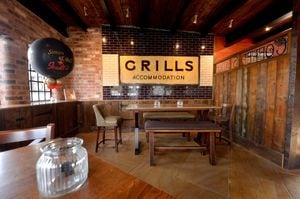
"The pub is very dated, poorly equipped and lacks any kind of food offer,” said a spokesman for the brewery, who also described the "rear of house" space as "substantial and ramshackle".
Out went the "poor quality, dilapidated" 1980s bar and 70s style cocktail lounge, and in came a series of hand-painted signs and an extended kitchen to provide food.
And the pub was packed to the rafters within minutes of opening last month, with people queuing to get in at midday.
Landlord Bill Tolmie said: “The place was packed on a Tuesday night, it was mad. People feel it is their pub, their iconic building, they were all 100 per cent convinced it was going to become a block of flats and they are delighted it has been saved."
Sadly, the future does not look so bright for the 191-year-old Old Stag's Head in the Penn area of Wolverhampton. The once-thriving community pub sits on the edge of Penn Common. It has been vacant since 2018, and its new owner intends on converting it into a six-bedroom house – providing the council grants planning permission.
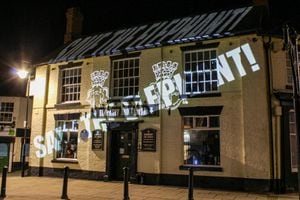
Also facing an uncertain future is the Elephant & Castle in Dawley, Telford, which has not reopened since the coronavirus lockdown two years ago. The Elephant, which has been a fixture in Dawley since 1730, has been owned for the past 10 years by John Ellis, who also keeps the award-winning Crown Inn in Oakengates.
Last month, a group of regulars organised a public meeting to discuss the future of the pub, with proposals put forward to run it as a community venue.
Mr Ellis says he fully supports the effort of the Save the Elephant campaign group, led by regular customer Pete Jackson. He adds that he has not given up hope on reopening the Elephant as a commercial business, but says at the moment it is simply not viable.
"Dawley has been very quiet since the lockdown," he says. “When I bought the pub I was told it was 12 months away from a structural collapse, because the building was falling down.
“Had that happened, Dawley would have been left with a collapsed building on the high street. We didn’t do all that work saving the pub, and spending all that money just to get rid of it.”
Those who attended the meeting on March 26 unanimously voted to further pursue the possibility of running it as a community enterprise, a model that has successfully revitalised The Pheasant at Neenton, near Bridgnorth, and The Boot Inn at Orleton near Ludlow.
Philip Guy says the important thing that any successful pub needs is a unique selling point that will make customers want to go in.
"We invested a lot in the decor, with the Red Lion we wanted to make it a bit quirky, so we made it traditional, but with a bit of a city-centre feel as well," he says. While live entertainment is a big draw at the Red Lion, Philip has taken a different approach with The Swan, offering customers more choice.
"Sometimes we would have, say, a Northern Soul night on, and regular customers would walk through the door and say 'we just want somewhere for a quiet drink'," says Philip.
"They used to walk out, but now they can go to The Swan, which is a quiet pub. It's also got a lovely south-facing garden, which will come into its own over the summer."
He says regular maintenance is also important.
"You have to keep improving the environment, we regularly redecorate," he says. "They do appreciate it if they haven't been in for a couple of weeks, and they see you have redecorated the toilets again."
He says the other advantage with his pubs is that they are close to several other independent pubs, making it an attractive location for people wanting to go on a real-ale tour.
But while Philip says location is crucial, he believes most pubs can succeed if they are well managed.
"Every pub has got a reason to survive," he says.
"Not everywhere needs to be a high-end eatery or fine dining, or with speciality lagers and a line of real ales. There is still a place for a small back-street pub with just a few beers and a dartboard. They don't all need to be taking £25,000 a week."




